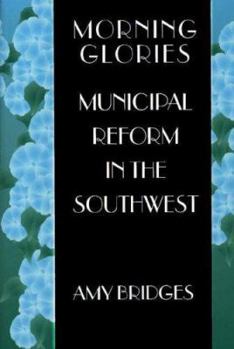Morning Glories: Municipal Reform in the Southwest
(Part of the Princeton Studies in American Politics: Historical, International, and Comparative Perspectives Series)
Select Format
Select Condition 
Book Overview
George Washington Plunkitt once dismissed municipal reformers as "morning glories" who "looked lovely in the mornin' and withered up in a short time, while the regular machines went on flourishin' forever, like fine old oaks." Although this remark rings true for the Northeast in the days when Tammany Hall ruled New York City, municipal reformers have governed the big cities of the Southwest for most of this century. Obscuring this fact and ignoring the Southwest in general, familiar accounts of municipal reform have focused on small towns and suburbs as the only locations where reformers achieved their goals. Amy Bridges redresses this neglect by tracing the reform politics and government in large Southwestern cities since 1901, thereby giving a more complete account of municipal reform. In the Southwest, municipal reformers got everything they wanted: nonpartisanship, city managers, citywide elections, civil service, and a government with few social service responsibilities. Successful at limiting popular participation and at carefully targeting amenities to their core supporters, incumbents in big cities counted on re-election as confidently as could any machine politician. Urban leaders were aggressive in their pursuit of urban growth and very popular with the people who did vote, but the political community remained small. Not until the 1970s did growth and exclusionary practices combine to uproot the vigorous "morning glories" of the Southwest.
Format:Hardcover
Language:English
ISBN:0691027803
ISBN13:9780691027807
Release Date:April 1997
Publisher:Princeton University Press
Length:264 Pages
Weight:0.05 lbs.
Dimensions:0.6" x 6.0" x 9.5"
Customer Reviews
0 rating





